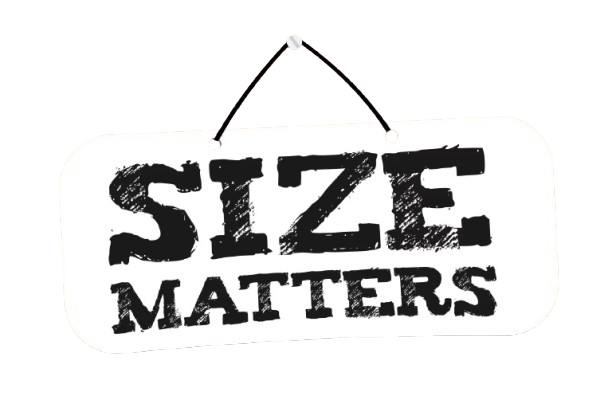Right Compressor Size for Your Business: How to Select

A Strategic Guide to Maximize Efficiency, Reliability, and Cost Savings
The right compressor size for your business is a strategic decision with far-reaching implications for your plant’s efficiency, maintenance cycle, and ultimate profitability. The optimal unit will provide equalized operation, satisfy process requirements, and produce quantifiable downtime reduction.
For compressor spare parts manufacturers, production engineers, maintenance staff, and procurement experts, compressor sizing isn’t just a matter of performance—it’s a matter of sustaining cost savings, maximizing plant operation, and extending component life.
What follows is a guide that will walk you through the most critical factors in choosing the optimal compressor size and illustrate how employing OEM-standard compressor spares and trusted partners, such as K-Nine Spares, can maximize operational dependability.
1. Know Your Operating Requirements
Demand and Application Determination
Before choosing the right compressor size for your business, you must be well aware of your needs in the process. Every application—refrigeration, gas compression, or production—is different with respect to pressure and capacity.
Key parameters are:
- Capacity (m³/hr or TR rating): Compressor overall volume to manage
- Pressure Range (bar or psi): System stability required pressure
- Variability of Load: Continuous or intermittent running of the compressor
Precise measurement of these parameters avoids under-sizing (resulting in overloading and wear-out) and over-sizing (resulting in inefficiency). Balanced sizing approach enables smoother running, better performance, and greater downtime reduction on production lines.
2. Coordinate Compressor Type with Application
Technology consistent with Process Requirements
Not every compressor is constructed similarly. The type chosen makes them suitable for your system and longer-lasting. Industrial operators employ reciprocating, screw, or centrifugal compressors—each with differing operation dynamics.
For instance:
- Reciprocating Compressors: Suitable for refrigeration and medium-load industrial processes.
- Screw Compressors: Suitable for continuous-duty, process-based plants.
- Centrifugal Compressors: Most suitable for high-capacity, large-volume plants.
Identifying the application with the compressor type allows you to schedule maintenance times, determine spare parts compatibility, and specify OEM-quality parts for lasting reliability.
3. Utilize Energy Efficiency and Lifecycle Economics
Balancing Performance and Long-Term Value
Properly sizing the compressor puts it in its most efficient load range, eliminating wasteful energy consumption and mechanical stress. Oversized compressors are wasteful, while undersized compressors have a reduced lifespan and overheat.
Key considerations:
- Energy Load Management: Run the compressor at the specified efficiency.
- Preventive Maintenance Programs: Construct with OEM-quality compressor spares to ensure consistent operation.
- Lifecycle Cost Analysis: Consider beyond purchase price—energy, service, and downtime expense.
Accurate sizing selection provides measurable cost savings, minimizes unscheduled maintenance, and guarantees the compressor and its parts operate optimally for their lifespan.
Interested in knowing what Compressor Predictive Maintenance is? Read on…
4. Check Site Conditions and Installation Layout
Assuring Operating Stability
A technically satisfactory compressor should be compatible with your plant design and environment. Space, ventilation, temperature, and foundation are important factors in ensuring level performance.
Pre-installation checklist:
- Adequate Space: Allow sufficient maintenance access.
- Reasonable Ventilation: Avoid overheating and energy loss.
- Solid Foundation: Reduce vibration and component stress.
Work with your engineers and OEM suppliers to align installation parameters with the rated capacity of the equipment. Integrating OEM-grade compressor spares from day one ensures longevity, safety of operation, and minimized breakdowns.
5. Design for Scalability and Future Demand
Growth-in-Mind Designing
Your process load today might not be your process load tomorrow. Scaling down your design for scalability means that your system operates efficiently with increasing production.
Questions to ask
- Will future capacity needs grow in 3–5 years?
- Is the chosen compressor big enough to meet the increased load without retrofits?
- Is a modular design more suited to staged expansion?
By planning ahead for future loads, companies can avoid early upgrading and production blockages. Continuous stockholding of OEM-specification spares keeps companies ready as systems develop—providing continuity and avoiding downtime by way of transition.
6. Collaborate with an Approved Spare Parts Supplier
Why K-Nine Spares is the Number One Choice
Equipment reliability operation is dependent on quality parts and continuous availability. K-Nine Spares sells top-quality, OEM-standard compressor spares to major compressor manufacturers.
They offer a wide range of precision-made parts such as valve plates, pistons, gaskets, liners, and crankshafts, all designed to fit and perform.
Purchasing through K-Nine Spares provides companies with:
- Less Downtime: Immediate access to essential components
- Guaranteed Compatibility: Produced to OEM standards
- Cost Savings: Enhanced part life and reduced maintenance frequency
- Technical Expertise: Support for selection, replacement, and maintenance
Whether you’re a procurement professional seeking dependable sourcing or a plant engineer managing performance, K-Nine Spares provides the quality assurance and reliability needed for smooth, uninterrupted operations.
7. Conclusion
Sizing Right with Quality That Lasts
Selecting the right compressor size for your business is more than a capacity choice—it’s an efficiency, reliability, and lifecycle value investment.
Through operation requirements determination, technology to process demand mapping, and the use of OEM-grade spares, companies are able to substantially boost system uptime, realize quantifiable cost savings, and achieve long-term stability.
With the backup of reliable partners such as K-Nine Spares, your compressor systems run at full potential, providing the dependability that expanding businesses require—today and tomorrow.




